The history of American labor is rich and vital. Without the sacrifices of generations of workers, who risked both lives and livelihoods in the name of fairness and equity, much of what we take for granted in our day-to-day lives would vanish: the eight-hour work day, the five-day work week (for some), protections for minors… But there’s still a long way to go. To read more about the history (and future) of American labor, check out the ten great books below.
*
Steven Greenhouse, Beaten Down, Worked Up: The Past, Present, and Future of American Labor (2020)
Beaten Down, Worked Up is “a page-turning book that spans a century of worker strikes…. Engrossing, character-driven, panoramic.” Steven Greenhouse was a reporter at The New York Times for 31 years, who spent 19 of those years covering labor and the workplace; “he probably knows more about what is happening in the American workplace than anyone else in the country” (Zephyr Teachout, The New York Times Book Review). Greenhouse describes how union power has weakened over time and how this decline of worker bargaining power has contributed to an increase in income inequality in a number of worrying ways: wage stagnation, declining mobility, and the skewing of our politics in favor of corporations and wealthy campaign donors.
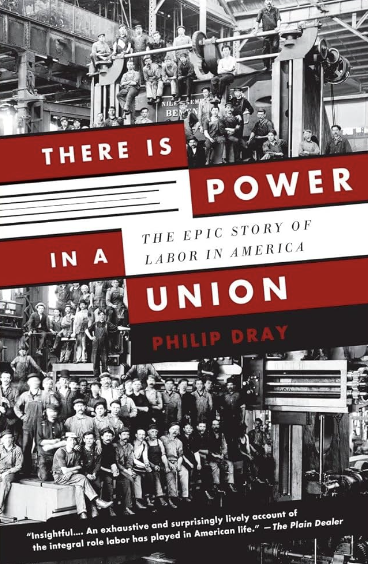
Philip Dray, There is Power in a Union: The Epic Story of Labor in America (2010)
There is Power in a Union seeks to tell the full history of labor in America, from the dawn of the industrial age to the present day. As NPR’s Maureen Corrigan puts it, “Dray’s chronicle reads like a novel, filled with dramatic acts of barbarism and bravery” (Favorite Books of the Year, Fresh Air). Philip Dray is an award-winning American writer and historian, who notes at the end of the book’s introduction that “organized labor today may have been reduced to a whisper of its former greatness, and no one can divine or guarantee its future, but we can know its past.”
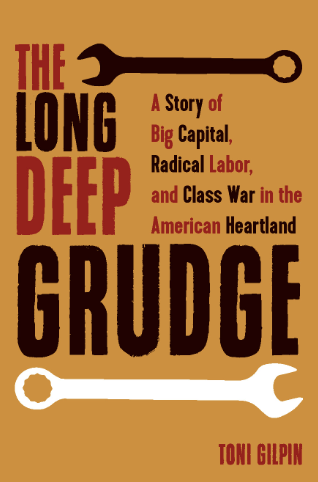
Toni Gilpin, The Long Deep Grudge: A Story of Big Capital, Radical Labor, and Class War in the American Heartland (2020)
The Long Deep Grudge, “written with clarity and grace,” “examines the conflict between International Harvester and the Farm Equipment Workers Union (FE) in order to provide new and trenchant insights into both the strengths and weaknesses of ‘radical’ unionism from the 1880s through the 1970s” (Taft Labor History Award). Toni Gilpin was a labor historian, writer and activist who held a PhD in American History from Yale. The Long Deep Grudge “is a tour-de-force of labor history related through a personal lens of family commitment to labor organizing” (International Labor History Association). LaborNotes writes that “the FE’s unwavering commitment to rank-and-file unionism and interracial solidarity is a moving account of ‘workers who genuinely loved their union, and thus each other.’”
2020 Book of the Year · International Labor History Association · Honorable Mention: Philip Taft Labor History Prize
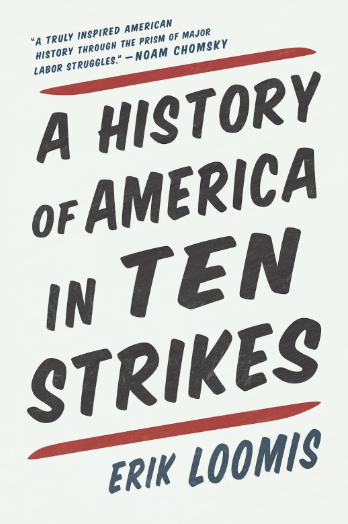
Erik Loomis, A History of America in Ten Strikes (2018)
Labor historian and history professor Erik Loomis gives an “entertaining, tough-minded, and strenuously argued” account of ten moments when workers fought to change the balance of power in America (The Nation). Loomis notes in the introduction that “combined, they weave a tale of a nation that promised life, liberty, and the pursuit of happiness, but that routinely denied that to workers, whether slave or free, men or women, black or white.” A History of America in Ten Strikes is a tight 288 pages, making it a good entry-point into America’s labor history. Although his title promises only ten strikes, Loomis references and summarizes many other strikes relevant to each of his topics, aiming to show the cause and effect of these historical moments—how they emerged and what resulted thereafter.
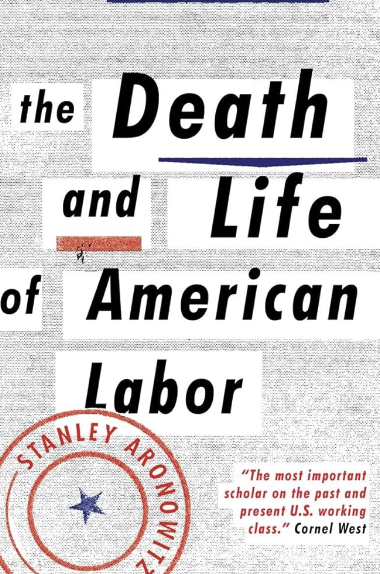
Stanley Aronowitz, The Death and Life of American Labor: Toward a New Workers’ Movement (2015)
Labor activist and scholar of the American labor movement Stanley Aronowitz “brings a historian’s understanding of American workers’ struggles in taking the long view of the labor movement” in the Death and Life of American Labor (Verso). Aronowitz described himself as a “working-class intellectual,” Cornel West described him as “the most important scholar on the past and present US working class,” and this pragmatism and wisdom can be seen in how the Death and Life of American Labor looks toward the future: “sustain[ing] a remarkable combination of sober reflection and grounded hope for a new workers’ movement, one without unions always at its center” (David Roediger, author of Seizing Freedom).
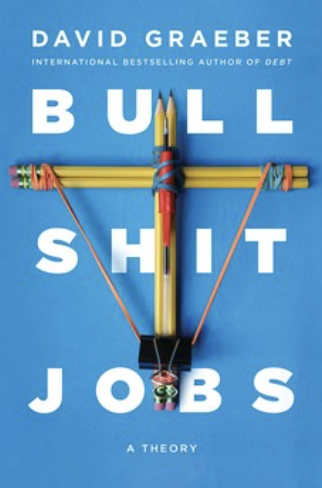
David Graeber, Bullshit Jobs (2018)
David Graeber was an American anthropologist, professor of anthropology at LSE, and anarchist activist. He coined the term “bullshit job” in a 2013 essay digging into why John Maynard Keynes’ 1930 prediction that technological efficiency would lead to a 15-hour work week by the end of the century did not only not pan out, but instead, seems to have led to the bullshit job. He defines such a job as “a form of paid employment that is so completely pointless, unnecessary, or pernicious that even the employee cannot justify its existence, even though, as part of the conditions of employment, the employee feels obliged to pretend that this is not the case.” Graeber goes on to analyze the societal harm of the proliferation of these kinds of jobs, taxonomizing five different types of bullshit jobs, and attempting to synthesize a theory around how and why we got here. The book is an engaging theory, written with Graeber’s characteristic charisma and acuity.
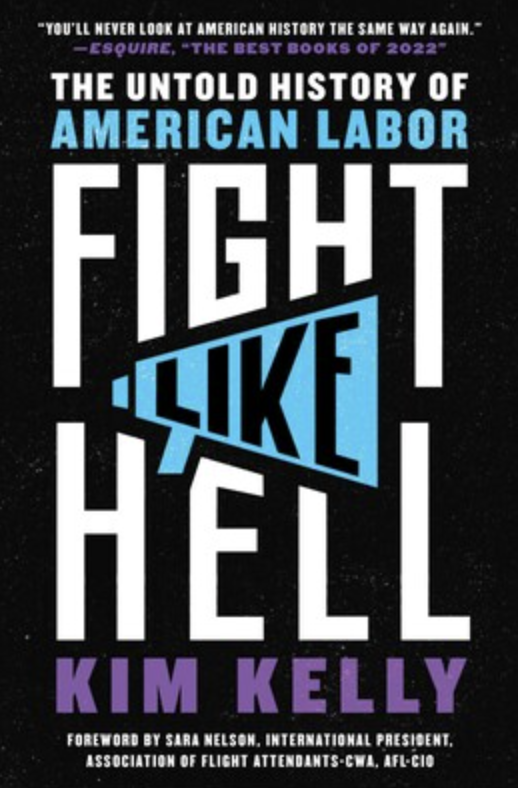
Kim Kelly, Fight Like Hell: The Untold Story of American Labor (2022)
Kim Kelly’s revelatory and inclusive Fight Like Hell “unearths the stories of the people—farm laborers, domestic workers, factory employees—behind some of the labor movement’s biggest successes” (The New York Times) to “carefully situate[] the current resurgence of union power within its historical context” (Vogue). Kim Kelly is an independent journalist and Teen Vogue labor columnist. Though Fight Like Hell looks passionately and inspiringly to the future, Kelly remains certain that the future emerges from the “long lineage of working-class heroes who, when faced with injustice and oppression, stood up, looked their bosses dead in the eye, and said, enough. It’s on each and every one of us to carry the torch forward” (from the book’s prologue).
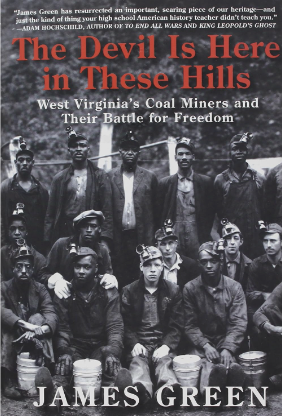
James Green, The Devil is Here in These Hills: West Virginia’s Coal Miners and Their Battle for Freedom (2016)
The mountains of Appalachia have been “a stage for some of the most quintessential and daring American experiences of innovation, rebellion, and social change” (Jeff Bigger). “The Mountain State’s mine wars were one of those experiences, a series of rebellions arising from Appalachia that played out on the national stage,” James Green describes in the introduction to The Devil is Here in These Hills. The story “is among the best and largely forgotten American stories. It’s about property rights versus human rights, about hard men and women and about violent conflict” (Dwight Garner in NYT review). James Green was a historian, author, professor and labor activist.
Winner of the 2016 PROSE Award for Outstanding Scholarly Work by a Trade Publisher
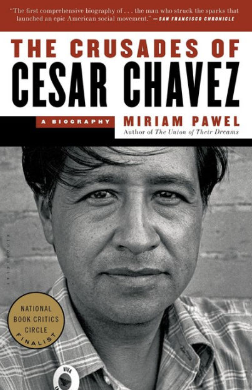
Miriam Pawel, The Crusades of Cesar Chavez: A Biography (2014)
The Crusades of Cesar Chavez is “a biography for readers who find real human beings more compelling than icons” (Los Angeles Times). Cesar Chavez remains one of the great labor heroes of the twentieth century. But our best heroes are human, saint-like yet imperfect. Miriam Pawel, Pulitzer Prize-winning editor and author, refuses to put her thumb on the scales in this deeply researched story of Chavez’s life, and in that refusal, she “deepens our understanding of [Chavez’s] profound humanity.” Chavez “may be one of the last Americans who thought creatively about a national ‘poor people’s movement’—and the kind of disruption that might get a response from the country’s elite… For a while everything he tried appeared to work”—strikes, fasts, marches, boycotts (NYT Review). But Pawel investigates further, past Chavez’s early and great successes, to the unadulterated truth that may be most helpful in looking forward.
2014 National Book Critics Circle Award Finalist • Winner of the California Book Award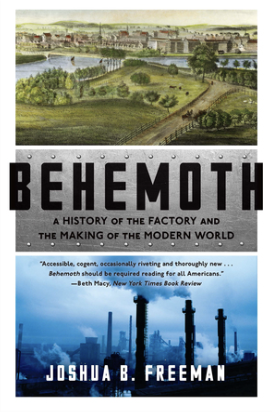
Joshua B. Freeman, Behemoth: A History of the Factory and the Making of the Modern World (2018)
The history of the factory is inextricably bound to the history of labor. “We have inherited [the factory’s] miraculous productive power and long history of exploitation without giving it much thought,” notes historian Joshua B. Freeman in the introduction to Behemoth. The factory is, and has always been, a symbol for both progress and suffering. In a review in the Guardian, Ian Jack observes this dualism. “Marx’s critique of the generality of capitalism had specific roots in the booming textile factories of northern England, where the exploitation of workers outraged him. Other writers, however, saw well regulated factories as agents of social progress… they became the vehicle ‘for not only visions of ever-greater productivity and material bounty but also for the notion that a more humane version of the economic system soon to be dubbed capitalism was possible’” (The Guardian Review). Behemoth “is a study of how and why giant factories became carriers of dreams and nightmares associated with industrialization and social change” (Introduction). Joshua B. Freeman is an author and Distinguished Professor of History at Queens College and the Graduate Center of CUNY.
Won the 2019 Philip Taft Labor Prize
